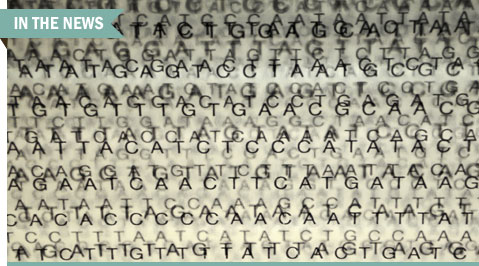
The National Institutes of Health (NIH) recently released the final NIH Genomic Data Sharing (GDS) policy, which aims to use data sharing to speed the translation of genomic data into knowledge, products, and procedures to improve health. This policy has roots in the Human Genome Project, which was finished in 2003 and “required rapid and broad data release during its mapping and sequencing of the human genome,” according to an NIH press release.
The GDS policy replaces the Genome-Wide Association Studies (GWAS) data sharing policy that NIH instituted in 2007, though it will maintain the two-tiered privacy system for providing access to human data that GWAS established. Under this system, data can either be classified as controlled-access, meaning researchers can only use them for approved studies, or data can be made available to the public without restrictions. With the aim of accelerating research, the GDS policy encourages investigators to seek unrestricted access, or “the broadest possible sharing permissions from participants for future research use of their data,” states the NIH press release.
The new policy strives to address patient confidentiality concerns as well. Researchers must certify that genomic data were collected in a legal and ethically appropriate manner, and that data have been scrubbed of personal identifiers. If an institute plans to de-identify data for research and broad sharing, it must also get informed consent from study participants. Investigations that use de-identified cell lines or clinical specimens will have similar requirements.
"Everyone is eager to see the incredible deluge of molecular discoveries about disease translated into prevention, diagnostics, and therapeutics for patients," Kathy Hudson, PhD, NIH deputy director for science, outreach, and policy, says in a prepared statement. "The collective knowledge achieved through data sharing benefits researchers and patients alike, but it must be done carefully.”
The GDS policy will apply to all “large-scale human and non-human projects that generate genomic data,” according to the agency, including research supported by NIH contracts and grants and those that are part of the NIH Intramural Research Program.
Read NIH's full statement announcing the new policy.